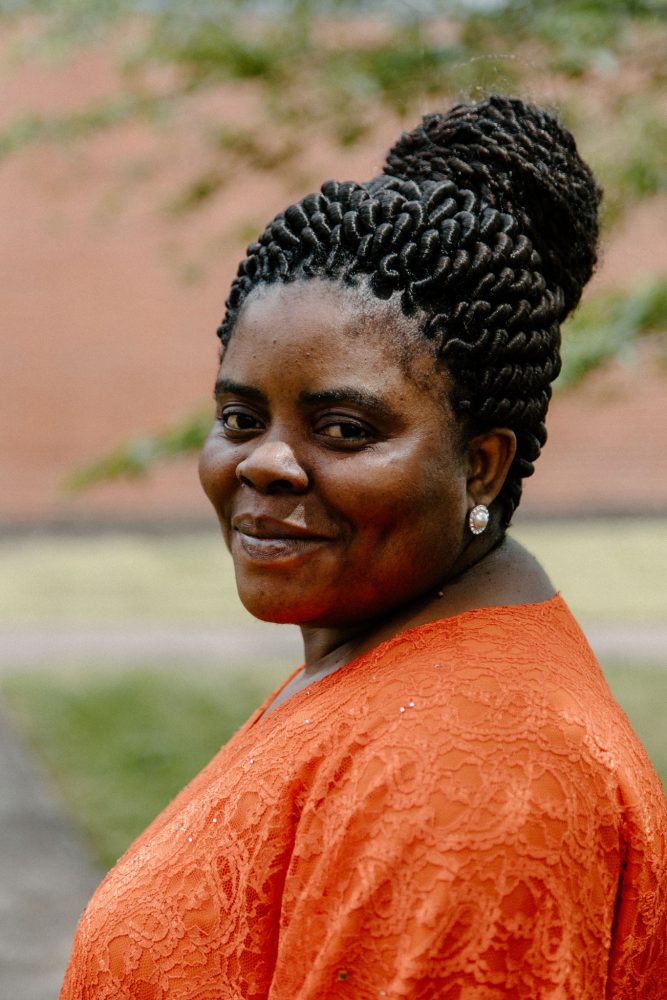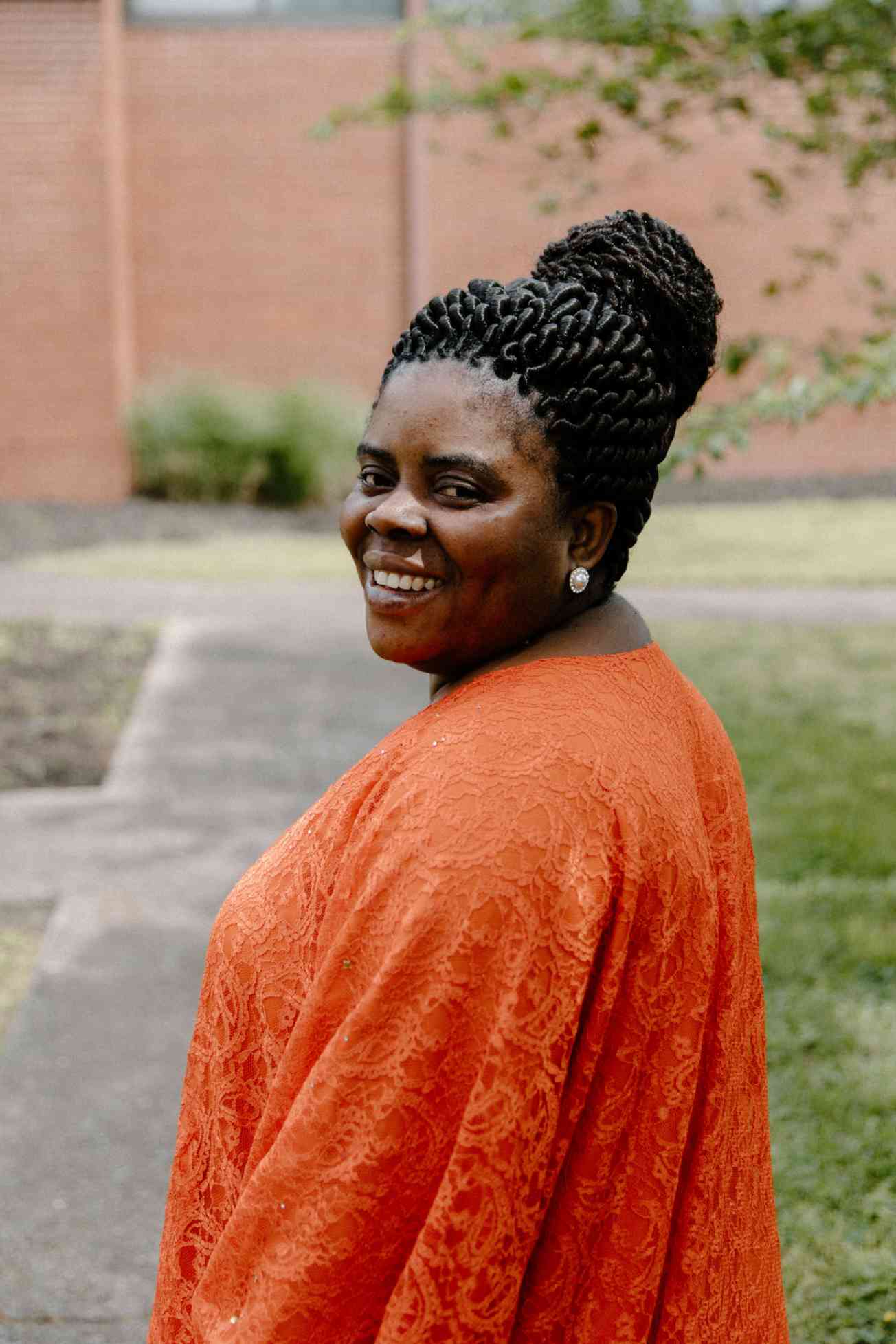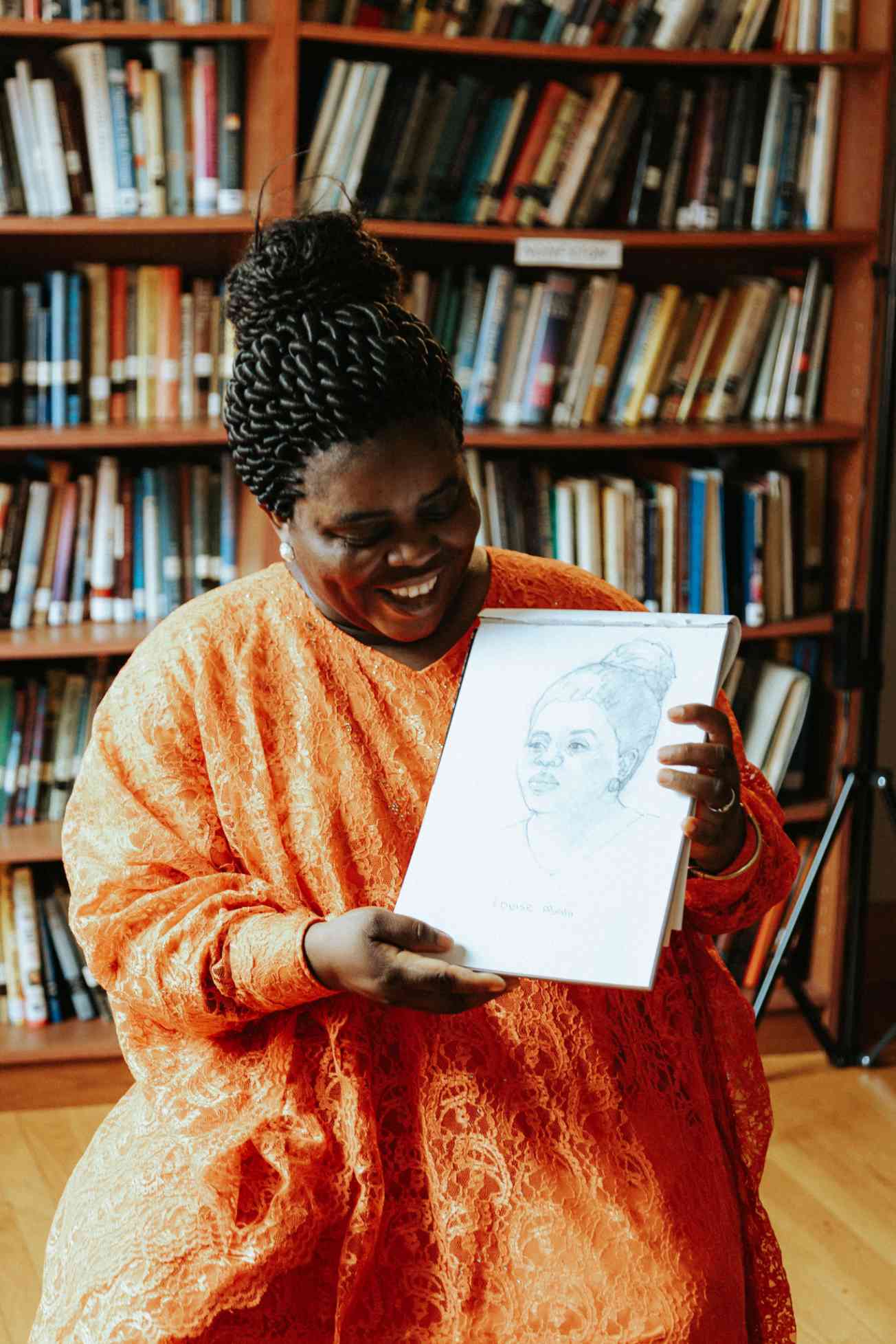From Refugee Camp to Building a Community
A refugee from the DRC builds support for others through community health

My name is Louise. I am Congolese. In 1996, we left our homeland to Tanzania. I went with my three other siblings, and my mom and my dad. I’m the oldest. We were in a refugee camp. I was seven. I grew up there.
Life in a refugee camp is like half a prison. You are not able to do everything you want. The government of that country doesn’t allow you to do anything there. So your activities are limited.
There is some happiness. There are many people from many different parts of the world, and you can play with friends. But mostly you are just there, waiting for someone to bring something for you, like food. We were not able to plant our own food, and we were very dependent to UNHCR (United Nations High Commissioner for Refugees).

So life was very hard in the refugee camp. You are not free. Sometimes you decide to go out of the camp, but the government doesn't allow you. You have just to live in that camp.
I lived in the camp for 20 years without going anywhere.
We got out because they said we had passed so many years in the camp. UNHCR and the government decided they had to help us, since we had been in the camp since 1996. Those of us who had been there for 20 years had the opportunity to go to America. My husband and I came to America, but my family was sent to other places, like Canada and Europe. We are spread out all over the place. But we had no choice. The government decides where you can go, which country would be best.
I came to America in 2016 with my husband and my four children. I have six children now. I had two more here. We were welcomed by the International Center. We had a case manager there. She helped us a lot, but after a few months, she stopped because she was busy taking care of other families. But two people we met at church, Rachel and Alice, fellowshipped with us. They took good care of us. After that, I fell pregnant with my fifth kid. I felt so sick. I had to go to the hospital two or three times. But these two people, Alice and Rachel, were there for us. They said, “Okay, it’s okay. You don’t have to worry. We are here. We are like family.” So they took good care of us. I had good health care, and when I needed a ride to the hospital, Rachel or Alice took me. They are my angels.
My kids go to school here. They like it. The system of education here is different than the education we had in the refugee camp. There, when we went to school, you would go all day without eating. There was no opportunity to eat anything at school. But here, they have everything. They don’t care to eat breakfast in the house. They want to eat at school.
They also ride the bus. In the refugee camp, we had to walk very far to school. They like their teacher, and they have many friends there. They even get invited to parties. It’s good.
Now I am a community health worker with Refuge Bowling Green. My role is to help my community reach the doctors. So I call to make appointments for people to see their doctor and their providers. And if they need transportation, I help arrange that. Sometimes I can help with translation too, but if there is too much terminology, I can ask for a medical translator.
My biggest challenge is getting refugees to understand what I am doing and building a program of support. We have workshops and meetings about health care and other things. I try to help them understand what they need to do, because as newcomers, they don’t know how to navigate things. I walk them through how to find a health care provider, where to go, how to get to the appointments, how to work with Medicaid, all of that.

I help people because I had help from others. So I need to help others.
My vision for my future is just to continue to be a good mother and my children to have a good education. I really really want them to have opportunities, so I can say, this one is a doctor. This one is a lawyer. This one is a police officer. So I want all my children to have a good education.
Here we have everything we need. If you are able to work, you can work and make money. And when you have money, you have everything you want. And I can say here it’s a little bit better because it gives us that opportunity to think about the future.
My life is a little bit better in America, but if the United States government could help the DRC government bring peace to my nation, it would be greatly appreciated to the traumatized citizens of the Congo, who are spread all over the world because of the endless war in our country.
Our team members obtain informed consent from each individual before an interview takes place. Individuals dictate where their stories may be shared and what personal information they wish to keep private. In situations where the individual is at risk and/or wishes to remain anonymous, alias names are used and other identifying information is removed from interviews immediately after they are received by TSOS. We have also committed not to use refugee images or stories for fundraising purposes without explicit permission. Our top priority is to protect and honor the wishes of our interview subjects.